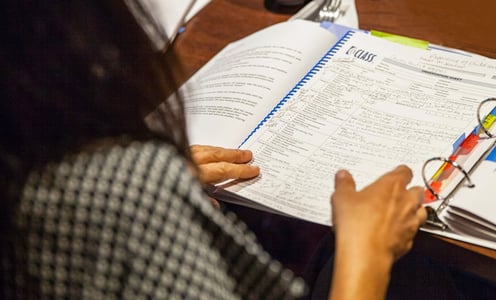
I love words and dictionaries. So, when I started drafting this blog post about the importance of CLASS Observer Certification, I looked up “certify” to get myself grounded. Here’s what I found in Merriam-Webster:
certify
- to say officially that something is true, correct, or genuine
- to say officially that something or someone has met certain standards or requirements
- to say officially that someone is insane and in need of treatment
Putting that third definition aside(!), let’s take a look at the importance of becoming a Certified CLASS Observer:
- Being “true, correct, or genuine” in measurement is critical. If you’ve ever been on a diet, you know that the scale you use should correctly measure your weight in order to provide true evidence of your progress. Similarly, CLASS observers need to be able to see and code interactions correctly in order to provide useful CLASS data—no matter who they are or whose classrooms they observe.
- Meeting “certain standards or requirements” is essential. Observers want to do their jobs right. Managers and administrators need data they can trust to inform their decision making. And teachers need to know that their interactions are being fairly measured by CLASS observers who have demonstrated that they’ve meet reliability standards and requirements.
Certification matters for all these reasons. When you can, ask to see your CLASS observer’s certification card. She’s earned it!
Marla Munter has spent most of her professional life supporting teaching and learning—inside and outside of the classroom. She’s worked for newspapers, nonprofits, public schools, and education companies. As the former Marketing and Communications Manager for Teachstone, she thrived on creative work through designing instructional programs, managing complex projects, leading creative teams, and designing engaging communications materials.

